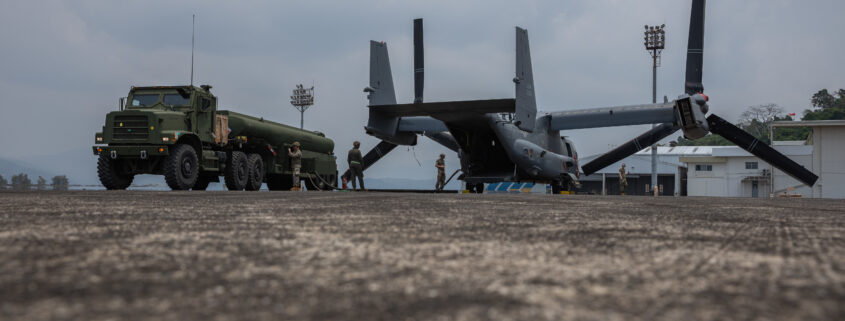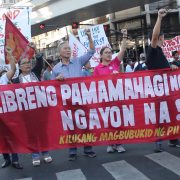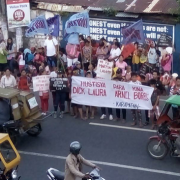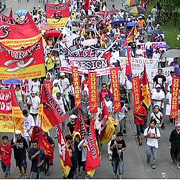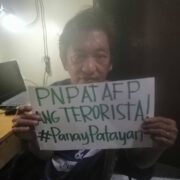EDCA live fire drills terrorize Nueva Ecija communities, Gabriela reports
Int’l rights group condemns arrest of anti-war exercise activists
The first day of the Balikatan war exercises between the Philippine military and the United States, Japan, Australia and United Kingdom is bringing terror and fear to affected communities, a national alliance of women reported.
As the 17,600 combined local and foreign troops started their military exercises in Enhanced Defense Cooperation Agreement (EDCA) sites across the country, residents in some affected communities fear leaving their homes for fear of being hit by live fire drills, Gabriela reported.
“In Nueva Ecija, residents expressed concern over explosions from last week beginning in the tail end of March. These explosions are usually heard at night, around 11pm, from the adjacent EDCA site in Fort Magsaysay,” the group said in a statement.
The live fire drills have been a source of concern for people’s mobility and their ability to safely seek their livelihoods, added Gabriela secretary general Clarice Palce.
Palce said the sounds of bombs and grenades going off keep families, especially children, awake at night.
“These explosions cause intense mental and emotional distress and anxiety in the affected communities. Further, these LFXs (live fire exercises) and military operations are major wildlife stressors and leave toxic waste behind. Alarmingly, the impoverished condition of our farmers is aggravated by these exercises,” Palce lamented.
Palce’s group said they have no doubt that the coming days will only bring more fear and suffering for Filipinos, including increased incidents of prostitution, among women and members of the LGBTQ+ community, who due to extreme poverty are driven into the plague of prostitution with the surrounding US military as their biggest “Johns”.
“Our fear is that with this biggest Balikatan yet, we will see even more Jennifer Laudes, more Vanessas and Nicoles, who have become victims of abuse from US soldiers and to this day are deprived of justice,” Palce said.
Laude had been brutally murdered by a US Marine while “Vanessa” and “Nicole” complained of being raped by American soldiers who were in the Philippines as part of its government’s military agreements with the US.
Anti-EDCA activists arrested
Meanwhile, the International Coalition for Human Rights in the Philippines (ICHRP) condemned the arrest of student activists who protested the ongoing war exercises as it started yesterday, Tuesday.
“[ICHRP] condemns the unlawful arrest of student leaders Gabriel Magtibay, chairperson of the Student Alliance for the Advancement of Democratic Rights in UP (STAND UP), and Joanne Pagkalinawan of the Far Eastern University during a lightning rally in front of the United States Embassy in Manila in the early morning of April 11,” said Peter Murphy, ICHRP Global Council Chairperson said in a statement.
Four paralegals who rushed to assist the arrested students were also nabbed by the Manila Police District, but were later released.
Magtibay and Pagkalinawan are being charged with illegal assembly, vandalism, and resisting arrest by the police.
“The arrest of student activists participating in a peaceful demonstration clearly violates their right to freedom of assembly. This is stipulated in international human rights covenants ratified by the Philippines, such as Article 20 of the Universal Declaration of Human Rights and Article 21 of the International Covenant on Civil and Political Rights,” Murphy said.
“The protest action was justified as it defends the Philippines’ right to national sovereignty, a basic human right. Participating in the Balikatan Exercises will only drag the Philippines into the worsening US-China tensions and will likely result in more violations of the rights of the Filipino people,” Murphy added.
ICHRP said the joint military exercise is widely seen as a provocative act by the US against China, as it includes military exercises planned with other countries in the First Island Chain – Japan, South Korea, and the Philippines. # (Raymund B. Villanueva)

